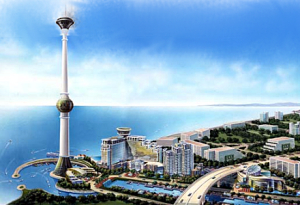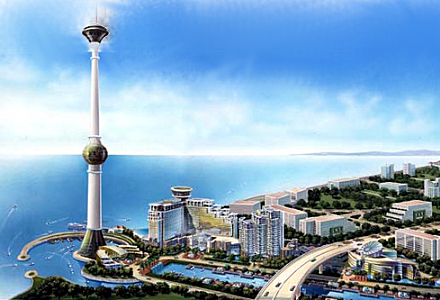 Japan could approve the basic framework of casino legislation as early as the end of this month, according to Tokyo-based consultancy Gaming Capital Management (GCM). Inside Asian Gaming reported that GCM was privy to comments made at an internal meeting of the country’s ruling Democratic Party of Japan (DPJ). At that meeting, Kenji Tamura, who chairs the Working Team Considering Integrated Resorts and Casinos, told DPJ members that a subcommittee set up in December to deal with the issue was “set to commence activities soon.”
Japan could approve the basic framework of casino legislation as early as the end of this month, according to Tokyo-based consultancy Gaming Capital Management (GCM). Inside Asian Gaming reported that GCM was privy to comments made at an internal meeting of the country’s ruling Democratic Party of Japan (DPJ). At that meeting, Kenji Tamura, who chairs the Working Team Considering Integrated Resorts and Casinos, told DPJ members that a subcommittee set up in December to deal with the issue was “set to commence activities soon.”
The new momentum stems from the apparent blessing of the country’s main opposition party, the Liberal Democratic Party of Japan (LDP), at the Working Team’s first meeting of 2012. The DPJ’s Issei Koga said speedy passage of the legislation would be vital for the initiative’s success, in part because of competing projects in neighboring countries. Numerous casino giants, including Las Vegas Sands and Caesars Entertainment, have expressed keen interest in being first to open up in Japan.
The Philippines isn’t waiting for Japan to act. Work on its ambitious 100-hectare Bagong Nayong Pilipino-Entertainment City Manila (ECM) project is underway (artistic impression pictured above), but unlike casino zones in other Asian jurisdictions, ECM is making do without the involvement of western casino companies. Among the four projects that have been given the nod to occupy the ECM zone, only one (Manila Bay Resorts from Japan’s Universal Entertainment) is purely foreign. The others are wholly or partly controlled by locals: Henry “retail king” Sy’s Belle Corp. is constructing the Belle Grande; port terminal magnate Enrique Razon’s Bloombury Investments is behind the Solaire Manila; while Resorts World Manila Bayshore is a product of Travelers International Hotel Group, a JV of Andrew Tan’s Alliance Global Group and Malaysian giant Genting.
American casino firms were reportedly sniffing around the Philippines when the ECM project was first announced in 2007, but never followed through on their initial interest. Their change of heart may have arisen from a perceived conflict of interest in the dual regulator/operator role of the state-owned Philippine Amusement and Gaming Corp. (PAGCOR). PAGCOR chairman/CEO Cristino Naguiat Jr. told Philippines news outlet ANC that such concerns were overblown, as PAGCOR expects to assume more of a pure regulator role (in the Metro Manila region, at least) in the future. Regardless, Naguiat doesn’t feel the Philippines needs/wants any western partners. “Personally, I have no plans of inviting them to come here, invest here. I’d rather deal with our ASEAN partners.”
With the help of those ASEAN partners, Naguiat expects that in five years time the Philippines will become the third Asian jurisdiction (after Macau and Singapore) to surpass Las Vegas in gaming revenue. Something that may help speed that process is the Philippines tolerance of junket operators. While Singapore and the US have demonized junket operators as enabling “terrorist financing activities,” PAGCOR VP of Licensed Casino Development Francis Hernando says his country has sufficient laws in place to deal with money laundering concerns. Macquarie Securities Group researcher Alex Pomento says this “investor-friendly” approach will help the Philippines “niche itself” from the “rigidity in the rules” of Singapore and Macau (and Vegas).
The ECM project is also burnishing the country’s infrastructure, with a light-rail project to get gamblers from airport to hotel and back again with the least amount of fuss. Naguiat says all four ECM partners are “more than willing to fund the skyway” project. With projected annual gaming revenues of $6b once ECM is fully operational, it’s clear they’ll be able to afford a track or two. Too bad the western casino giants got left at the station.
